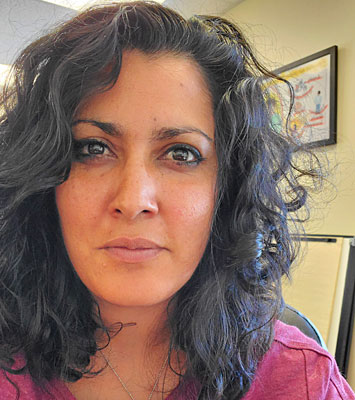Indigenous Caregiver Support Worker

Tasleem Mall
Main Office: 250-914-2212
Cell: 250-202-1358
Program Description
The Indigenous Caregiver Support Worker (ICSW) program provides essential support services to Indigenous caregivers (grandparents/aunties/uncles etc.) who are caring for Indigenous children that are placed in an MCFD out-of-care placement option or who are caring for Indigenous children under a family plan. The purpose of the ICSW program is to support Indigenous families and community to care for our own children in place of stranger foster care. The ICSW will connect caregivers to knowledgeable resources and provide ongoing services to assist caregivers navigate MCFD out-of-care placement options and placement requirements as well as family law, guardianship rights and information with the goal of keeping Indigenous children connected to their family, cultural community and traditional languages, while preserving the child’s Indigenous identity.
Philosophy
Indigenous people have safely cared for our own children for thousands of years before colonial laws and powers intervened with the implementation of the Indian Act. Colonial laws and systems designed to assimilate Indigenous people into mainstream society had a concentrated focus on children, this included mandatory enrolment into Residential Schools and forced child removals through the child welfare system. Since the late 1950’s Indigenous youth and children continue to be overrepresented in the child welfare system with the current numbers of Indigenous children in care higher than at the height of Residential School. Today in BC with only 10% of the child population identified as Indigenous, over 60% of those children & youth are in government care.
Indigenous children have the right to be safe and healthy within their family system and they have the right to maintain their Indigenous identity and autonomy. The Guiding Principles of the Child, Family, Community Services Act (CFCSA) Sec. 2(b) states, a family is the preferred environment for the care and upbringing of children and the responsibility for the protection of children rests primarily with the parents. When it is not safe for a child to remain with their parents all efforts must be made to look into extended family options. Sec 2(e) of the CFCSA also states, kinship ties and a child’s attachment to the extended family should be preserved if possible and Sec 2(f) states, the cultural identity of aboriginal children should be preserved.
Program Objectives
Family and cultural preservation is a key objective with this program, using a culturally responsive and strength based approach, our primary goal is to work to reduce the overall number of Indigenous children & youth in government care, we do this by:
- Supporting Indigenous families in identifying safe kinship caregivers (extended family, community members or someone with a significant relationship to the child);
- Assist kinship caregivers in understanding the various out-of- care placement options that may be available to them and identifying the best option that will work for the child;
- Ensuring kinship caregivers have access to resources and support that will help them safely care for children both under the CFCSA and the Family Law Act;
- Engaging in collaborative planning with family, community supports and MCFD to ensure planning for a child’s care to keep them safe and connected to family, community and culture.
Outcomes
- Improving the overall numbers of Indigenous children & youth in out-of-care placement options in our local service area.
- Indigenous kinship caregivers have knowledge of and access to community and financial resources to help provide safe and healthy care for children & youth.
The following provides a more detailed description of the functions and duties for the Indigenous Caregiver Support Worker:
1. Develop and Maintain Community Relationships
a) Develop relationships with community professionals (i.e. social workers, and frontline workers, legal aid services etc.) and other professionals involved with Child and Family Services delivered within the community.
b) Regularly attend community events and participate in community activities to develop relationships with community members.
2. Assist Families to Access Supports & Participate in Planning
a) Assist with identification/development of extended family supports within the community in collaboration with the cultural connections worker, family group conference coordinator, MCFD social workers and family support workers.
b) Assist family support team and cultural connections worker in identifying and supporting extended family to participate in family planning and ongoing implementation of the family plan.
3. Provide Caregivers with Information and Advocacy Support
a) Ensure caregivers have all the information they need to fully understand the process they are going through, as well as understanding their individual rights.
b) When necessary assist and support the caregiver as they participate in the court process, and go to court with the caregiver, if requested.
c) Assist the caregiver in understanding various aspects of out-of-care placement options within the CFCSA.
d) Help kinship caregivers to have a strong voice throughout the process when working with MCFD and in the court system.
4. Liaise between Community, Families and External Professionals
a) Provide interpretation both ways – to support families to understand how MCFD and other child and family services agencies operate as well as educate service providers to understand the unique characteristics and cultural practices of the family and their needs.
b) Liaise between families and external organizations including: MCFD social workers and other social services, and education or health professionals, in order to actively support and facilitate an Integrated Case Planning process.
***Please know that as a new program, we have the flexibility to allow this program to develop and grow.
